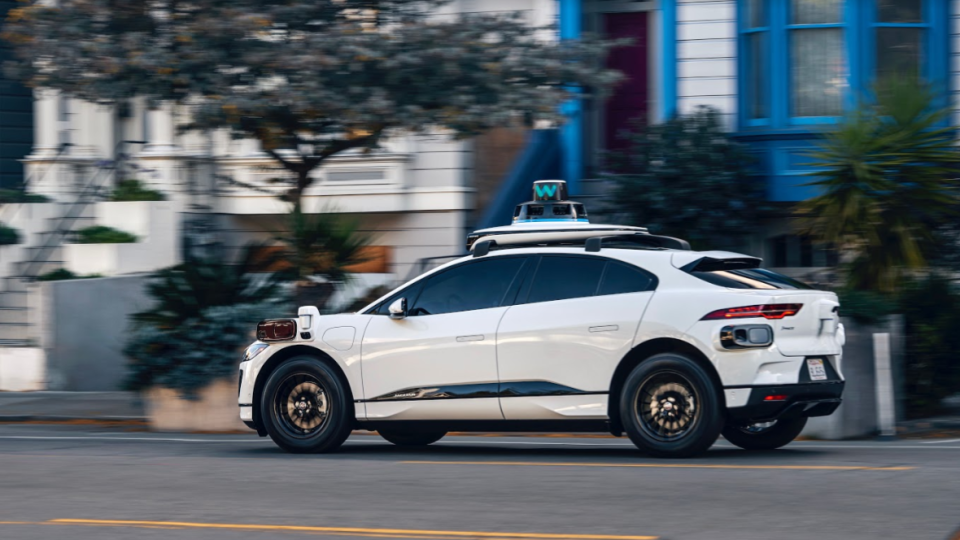Autonomous operator is expanding ride-booking to Austin, according to SXSW announcement

Autonomous vehicle company Waymo will begin offering ride-booking in Austin through its Waymo One service later this year, as the company continues to step up its testing in Central Texas.
Waymo co-CEO Tekedra Mawakana offered more details on the timeline for its Austin ride-hailing program during a South by Southwest session Wednesday when she explored the company's road map for multicity autonomous vehicle service. Waymo One works similarly to apps such as Uber and Lyft.
During the session, Mawakana also announced that Waymo would begin offering rides to the general public in Los Angeles through Waymo One. Waymo has previously said that Los Angeles and Austin would be the third and fourth cities, respectively, to gain Waymo's ride-hailing service, but the announcement brought clearer timelines on the service's availability in both cities.
Waymo is one of several autonomous vehicle companies that has tested the technology in Austin in recent years. The company started as a project of Google before becoming a Google subsidiary in 2016.
The company already operates 24/7 ride-hailing services in San Francisco and Phoenix, and it has been operating an invitation-only program in Los Angeles since last year with plans to expand to the general public.
Waymo has already served thousands of people who have taken over 15,000 rides in Los Angeles during its invitation-only program. The company also has more than 50,000 people on its waitlist in Los Angeles.
On its website, Waymo already has a similar waitlist for Austin residents interested in taking an autonomous vehicle ride through the company.
Waymo returned to Austin about a year ago to test its self-driving technology. The company has been testing its fifth generation Waymo Driver, an all-electric Jaguar I-Pace outfitted with the company’s latest sensor technology.

Mawakana said the company had achieved key milestones in both Austin and Los Angeles.
Wednesday's announcements came about a week after the company began testing completely driverless cars, with no human safety driver behind the wheel, in Austin. The company said its initial driverless rides in Austin would be offered to Waymo employees. At the time, the company said it aimed to open its Waymo One program to Austinites at a later date but did not share a timeline.
After Wednesday's session, Mawakana told the American-Statesman that Austin has been a welcoming city over the past year.
"Coming into Austin and knowing that later this year we'll be offering rides to members of the public is just really exciting," she said. "Austin has this natural convening point where people from all over end up here, and what we've heard about people's transportation pain points and needs really feels like something we can address."
Mawakana also said Austin is following similar steps to other cities that the company has expanded its ride-booking to. This timeline includes engaging with community groups, first responders and policymakers to make Waymo's plans clear before moving to driving "around the clock to verify and validate (Waymo's software)." From there, the company moves to driverless operations with a human in the car, to driving with no one in the car and to offering rides to employees, before ultimately offering rides to members of the public.
Mawakana said the company has not decided on exact timing of when it will offer ride-booking to the public in Austin, adding that the decision will be made in part by employees' feedback as they test ride the vehicles as passengers, as well as feedback from community partners.
"It's not like we've decided (the timeline), and we're keeping it close to the chest," Mawakana said. "We know that sometime this year we'll be in the position to do it. We're really excited about it."
The company previously had been one of the first companies to test its technology in Austin, first testing a fully self-driving vehicle on Austin streets in 2015, but later closed its Central Texas operations in 2019.
The company has said that it intends for its ride-booking service to be "truly useful" in Austin from its start, covering a large portion of the city day and night.
In Austin, Waymo has been testing its vehicles in about a 50-square-mile area that includes downtown, Barton Hills, Riverside, East Austin and Hyde Park, with plans to expand over time.

Other autonomous vehicle operations in Austin
Volkswagen is also currently testing its own autonomous vehicle technology on Austin roads. The company announced last year it would start testing a small fleet of autonomous electric "ID. Buzz" vehicles in Austin, as the company's first autonomous driving test program in the United States.
Volkswagen has said it will have a commercial launch of autonomous vehicles in 2026. Through that year, the company said it will continue to have human safety drivers.
Other such companies have previously tested in Austin in recent years, including Argo AI, a Ford subsidiary, that tested from 2019 to 2022, with operations that included ride-hailing and delivery partnerships with Lyft and Walmart, before it shut down.
Cruise, a subsidiary of General Motors was also testing and operating autonomous vehicle ride-hailing service in Austin as recently as October before it initiated a nationwide pause, after a high-profile incident in which a vehicle hit and dragged a pedestrian.
Mayor Kirk Watson discussed autonomous vehicles at SXSW
Earlier last week, in a separate SXSW session with Uber CEO Dara Khosrowshahi, Mayor Kirk Watson said that during his first six months as mayor a number of autonomous vehicle companies came into the city with “a lot of promise.”
But he said autonomous vehicles have also brought issues such as not pulling over for emergency vehicles and parking or stopping places they should not. He also alluded to Cruise’s nationwide pause.
“With the growth of Austin, and the desire for sustainability ... I see a lot of promise in (autonomous) vehicles," Watson said. "But we're not there yet."
During his session, Watson invited the companies to proactively work with the city and said it's an area where the state has preempted the local government's ability to regulate. He shared a message to the autonomous vehicle companies looking to come to Austin.
"Let's not worry about the preemption," Watson said. "Show up, work with the local governments. ... Come talk to us."
Under a Texas law passed in 2017, autonomous vehicles can operate without a driver inside and can be used on highways as long as they can follow traffic laws, have insurance and are equipped with video recording equipment. Manufacturers are considered responsible for any collisions or broken traffic laws.
During her session, Mawakana responded to Watson's comments, and said Waymo aims to be a community partner that works with local governments from the start.
"Not all companies are created equal; we've been focused on deep engagement from the beginning. I don't think there’s another way to do this," she said.
After Wednesday's session, Mawakana again emphasized her company is "deeply engaged" with the city through its public affairs team and is working to engage the community at large.
"We want an open door. We want to serve as a resource. We've been at this a long time," Mawakana said. "We want to do it in a way that works for Austin."
This article originally appeared on Austin American-Statesman: At SXSW, Waymo CEO says Waymo One service to be in Austin this year
